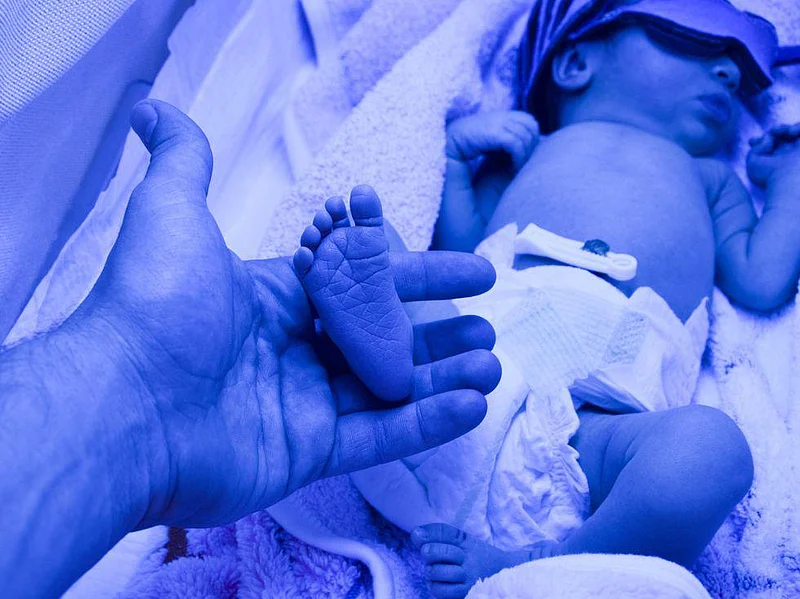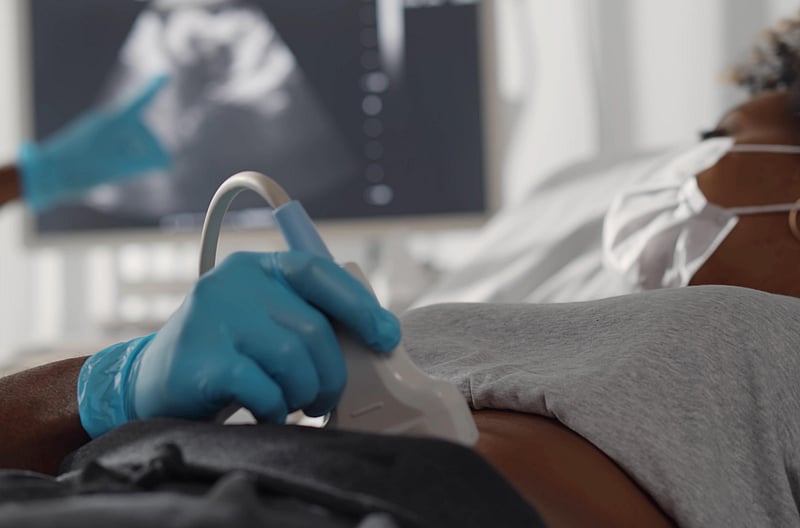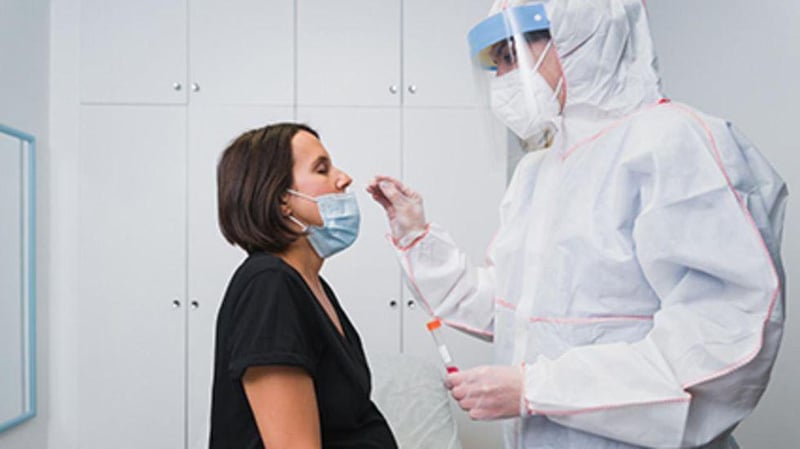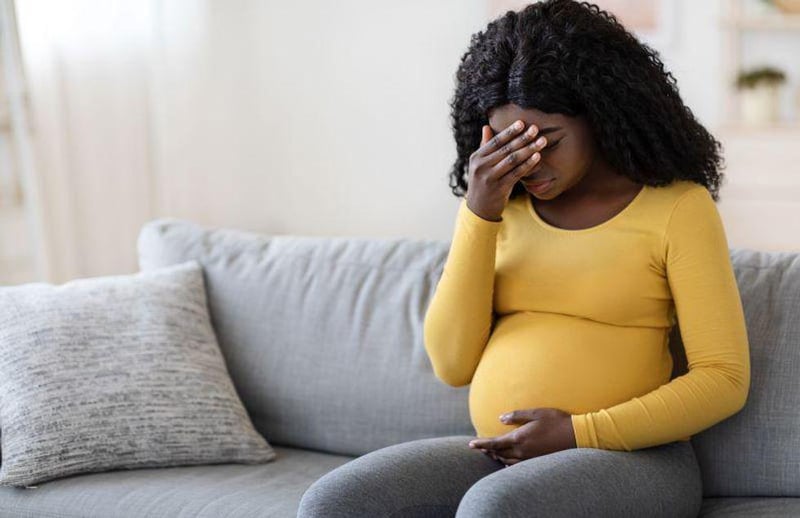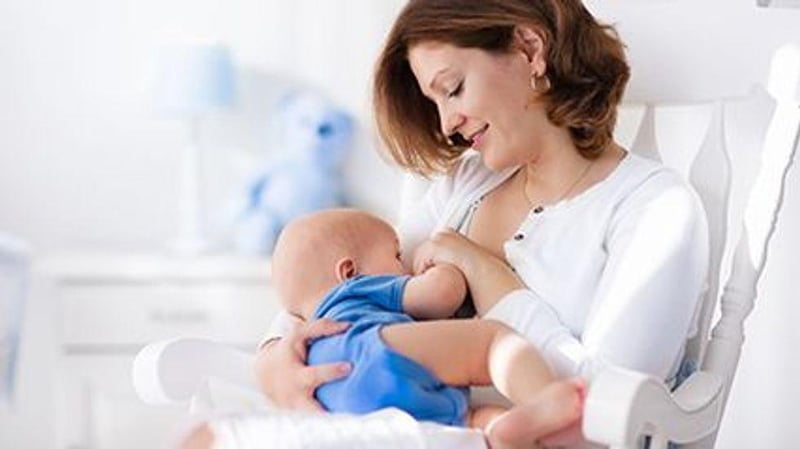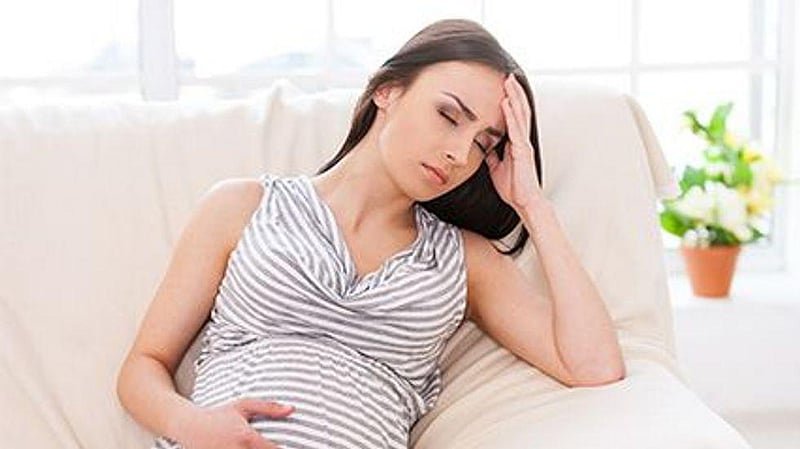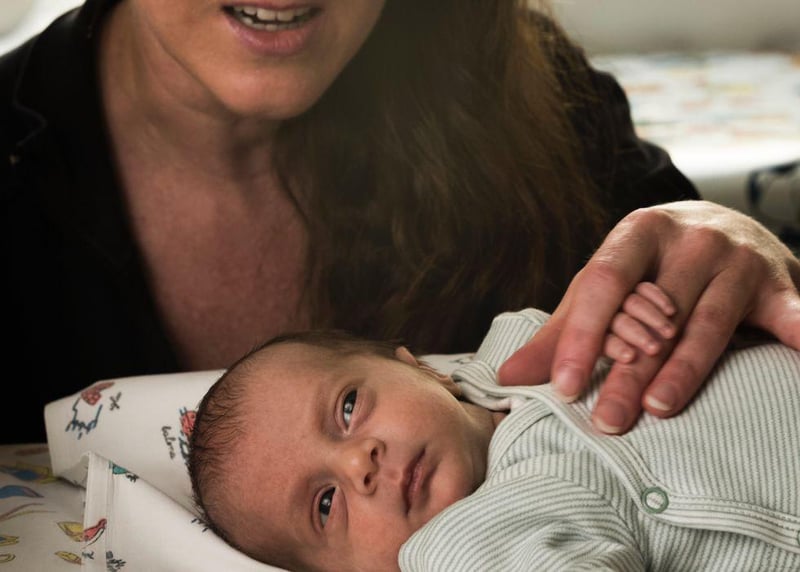Get Healthy!
203 Results for search "Pregnancy: Risks".
Health News Results - 203
Gum disease has been linked to an increased risk for preterm birth, and now new research suggests that chewing sugar-free gum with xylitol during pregnancy may lower this risk.
The study took place in Malawi, Africa, which has one of the world's highest rates of preterm delivery. Experts are quick t...
- HealthDay Reporter
- Denise Mann
- |
- February 3, 2022
- |
- Full Page
The placenta was designed by nature to keep baby both nourished and safe. Now, research reveals how it protects the developing fetus from a new foe: The virus that causes COVID-19.
"The placenta is one of the few 'success stories' of the pandemic," said
- HealthDay Reporter
- Robert Preidt
- |
- February 2, 2022
- |
- Full Page
So, you're pregnant and battling nausea every day. What harm could come from smoking a joint to settle your stomach?
Plenty, according to a new study that suggests women who use pot while expecting put their infants at risk for some serious health problems.
The problems included
They've gotten some media headlines recently, but potential menstrual changes associated with getting a COVID vaccine are typically minor and temporary, two new international studies confirm.
That's great news for women, said an expert in fertility and reproductive health.
"The studies coming from the UK, US and Norway provide us with significance reassurance that the COVID vaccine ...
- HealthDay Reporter
- Ernie Mundell and Robert Preidt
- |
- January 27, 2022
- |
- Full Page
Strokes aren't common among young people, but when they do happen, they strike more often in women than men, a new review finds.
Of the nearly 800,000 Americans who suffer a stroke each year, 10% to 15% are adults age 45 or younger, according to the American Heart Association.
The new research suggests that young women may face a particular risk: Those age 35 and younger were 44% m...
- HealthDay Reporter
- Amy Norton
- |
- January 25, 2022
- |
- Full Page
One less excuse to avoid that COVID vaccine: The shots don't affect fertility in either men or women, new research shows, but coronavirus infection could cause short-term fertility problems in men.
"Many reproductive-aged individuals have cited concerns about fertility as a reason for remaining unvaccinated," said lead study author Amelia Wesselink. She is research assistant professor of ...
- HealthDay Reporter
- Robert Preidt
- |
- January 21, 2022
- |
- Full Page
Unvaccinated pregnant women are putting themselves and their baby at risk for serious complications of COVID-19, according to new research out of Scotland.
For women who have the virus within 28 days of their delivery date, those complications include preterm births, stillbirths and newborn deaths. Infant deaths are four times higher among unvaccinated women,
A simple blood test may help spot pregnant women who are at risk for developing preeclampsia -- dangerously high blood pressure during pregnancy -- before it becomes a threat to both mother and child.
Marked by a sudden spike in blood pressure, protein in urine or other problems during pregnancy, preeclampsia occurs in about 1 in 25 pregnancies in the United States, according to the lates...
- HealthDay Reporter
- Denise Mann
- |
- January 6, 2022
- |
- Full Page
The number of American women with chronic high blood pressure who are dying during and after pregnancy is up sharply, a new study warns.
Of 155 million births in the United States between 1979 and 2018, more than 3,200 mothers died of high blood pressure-related causes-- a 15-fold rise over the period. The risk was particularly high among Black women, according to
Getting a COVID-19 vaccine is safe in pregnancy, experts have been saying for months.
Now, a new study adds evidence to support that advice.
"Getting vaccinated against COVID-19 is important for preventing severe illness in pregnant people," said study author Dr. Heather Lipkind, an associate professor of obstetrics, gynecology and reproductive sciences at the Yale School of Medic...
- HealthDay Reporter
- Cara Murez
- |
- January 5, 2022
- |
- Full Page
Babies born at the height of the pandemic appear to suffer small but significant delays in their motor and social development, a new study reports.
Babies were particularly at risk if their mothers were in the first trimester of their pregnancy during spring 2020, when the United States entered lockdowns.
"It's important to recognize these are very slight differences. There weren't ...
- HealthDay Reporter
- Dennis Thompson
- |
- January 4, 2022
- |
- Full Page
The best time during pregnancy to get a COVID-19 vaccine appears to be right now.
A new study found that antibodies to the SARS-CoV-2 virus in nearly 1,400 women and their babies at the time of delivery didn't vary dramatically based on when a woman got ...
- HealthDay Reporter
- Cara Murez
- |
- January 3, 2022
- |
- Full Page
Moms who had COVID-19 in pregnancy can breathe easier thanks to a small, new study that found no growth or development problems in 6-month-old babies whose mothers had the virus while expecting.
"Our results should be reassuring to pregnant women with COVID-19 who are worried about how the virus might affect the baby," said study co-author Dr. Malika Shah, a neonatologist at the Children'...
- HealthDay Reporter
- Robert Preidt
- |
- December 21, 2021
- |
- Full Page
A growing number of pregnant women are using marijuana or other cannabis products, and a new study suggests that relief of symptoms such as morning sickness may be a primary reason.
In recent years, studies have documented a rise in cannabis use during pregnanc...
- HealthDay Reporter
- Amy Norton
- |
- December 20, 2021
- |
- Full Page
Pregnant women who use hair dyes or straighteners may have relatively lower levels of pregnancy-supporting hormones, a recent study suggests.
Researchers found that among more than 1,000 pregnant women they followed, those who used certain hair products -- dyes, bleaches, relaxers or mous...
- HealthDay Reporter
- Amy Norton
- |
- December 17, 2021
- |
- Full Page
Quitting smoking is especially important during pregnancy, and now a new study suggests that when it comes to kicking the habit, cash may be just the incentive some women need.
The study results suggest progressive financial rewards for smoking abstinence "could be implemented in the routine health care of pregnant smokers," the French researchers said. Dr. Ivan Berlin of Hôpital Piti�...
- HealthDay Reporter
- Robert Preidt
- |
- December 2, 2021
- |
- Full Page
Besides its terrible impact on mental health, postpartum depression can also bring long-term financial struggles to affected women, new research shows.
"These findings highlight the importance of screening and expanding access to mental health support services for low-income pregnant and postpartum women," said study author Slawa Rokicki, an instructor at Rutgers School of Public Health i...
- HealthDay Reporter
- Robert Preidt
- |
- November 30, 2021
- |
- Full Page
There is a very low risk that pregnant women with COVID-19 will pass the virus to their unborn babies, researchers say.
The study should reassure expectant parents, said the British investigators.
To find out if and how the virus could pass from an infected pregnant women to her fetu...
- HealthDay Reporter
- |
- November 25, 2021
- |
- Full Page
The Delta variant is proving to be dangerous for pregnant women, raising the odds of both stillbirth and death, new government reports reveal.
In one study, researchers analyzed Mississippi State Department of Health data and discovered that among women with COVID-19, the death rate was three times higher among pregnant women than non-pregnant women of reproductive age, and the death rate...
- HealthDay Reporter
- Robert Preidt
- |
- November 22, 2021
- |
- Full Page
Can your weight before pregnancy determine your baby's chances of developing asthma or allergies?
Yes, claims a study that looked at that question, as well as whether weight gain during pregnancy might have an impact.
"We did find that there was a link between the mother's weight before pregnancy, entering pregnancy, with the development of certain allergic diseases among c...
- HealthDay Reporter
- Cara Murez
- |
- November 19, 2021
- |
- Full Page
Marijuana use in pregnancy may increase your child's risk for stress and anxiety, a new study suggests.
Although some moms-to-be use pot hoping to relieve morning sickness and anxiety, they should know it may cause genetic changes in the uterus that result in children becoming anxious, aggressive and hyperactive, researchers say.
"People are saying that cannabis is benign, and take ...
- HealthDay Reporter
- Steven Reinberg
- |
- November 16, 2021
- |
- Full Page
Many women dread having to give up coffee during their pregnancy, but new research suggests that consuming a little caffeine while expecting might not necessarily be a bad thing.
"While we were not able to study the association of consumption above the recommended limit, we now know that low-to-moderate caffeine is not associated with an increased risk of gestational diabetes, preeclampsi...
- HealthDay Reporter
- Cara Murez
- |
- November 16, 2021
- |
- Full Page
Two placenta-related markers could reveal older women's risk of serious pregnancy problems such as stillbirth and premature or very small babies, British researchers say.
They analyzed blood samples and medical data from 527 pregnant U.K. women, including 158 in their 20s; 212 in their 30s; and 157 in their 40s.
- HealthDay Reporter
- Robert Preidt
- |
- November 2, 2021
- |
- Full Page
So-called "forever chemicals" might increase pregnant women's risk of a dangerous condition known as preeclampsia, researchers say.
Perfluoroalkyl substances (PFAS) are widely used and long-lasting chemicals found in the drinking water of many U.S. communities.
A new study found a link between PFAS exposure and late-onset preeclampsia, a condition characterized by high blood pressur...
- HealthDay Reporter
- Robert Preidt
- |
- November 2, 2021
- |
- Full Page
The joys of motherhood may be overshadowed in the United States since as many as 50% of new or expectant moms can't pay their bills, including health care bills, new research suggests.
"Financial hardship is highly prevalent among pregnant and postpartum women," said study co-author Dr. Michelle Moniz. She is an assistant professor of obstetrics and gynecology at the University of Michiga...
- HealthDay Reporter
- Denise Mann
- |
- November 1, 2021
- |
- Full Page
A two-minute test can accurately detect vaginal bacteria associated with preterm birth, researchers have found, pointing to a possible way to identify pregnant women at increased risk of early delivery.
In the United States, about one in 10 babies are born preterm, according to the nonprofit March of Dimes. Babies born preterm (before the 37th week of pregnancy) are at increased risk of h...
- HealthDay Reporter
- Amy Norton
- |
- November 1, 2021
- |
- Full Page
While anxiety and depression in pregnant women have already been linked to low birth weight and preterm birth, they may also contribute to higher rates of cesarean deliveries.
Researchers called the study among the largest to document a link between mood and anxiety disorders and first-time C-sections among low-risk pregnant women.
"Our findings reinforce the importance of better id...
- HealthDay Reporter
- Cara Murez
- |
- October 22, 2021
- |
- Full Page
When a pregnant woman is infected with COVID-19, the sex of the fetus may influence immune system activity, researchers say.
The new study included 68 mothers-to-be. Thirty-eight developed COVID-19 during their third trimester, while 30 remained virus-free. In both groups, half of the fetuses were male and half were female.
In the infected women, male placentas had significantly hig...
- HealthDay Reporter
- Robert Preidt
- |
- October 21, 2021
- |
- Full Page
Women who were born with heart defects may get some reassurance from a new study that finds they face no heightened risk to health during a pregnancy and delivery.
According to the researchers, doctors may often advise these women against getting pregnant due to the potential risks for them and their babies, but until now those risks have been unclear.
"The most important finding fr...
- HealthDay Reporter
- Robert Preidt
- |
- October 18, 2021
- |
- Full Page
Pregnant women suffering from COVID-19 with symptoms are more likely to experience complications that call for an emergency delivery, a new study suggests.
On top of facing a slightly higher risk for needing an unexpected cesarean section, women with symptomatic COVID-19 were more likely to need oxygen support and their infants were more likely to need care in a neonatal intensive care un...
- HealthDay Reporter
- |
- October 11, 2021
- |
- Full Page
Since the rise of the Delta variant, one Texas hospital has seen a surge in severe COVID-19 among pregnant women -- nearly all unvaccinated.
Researchers at the Dallas hospital found that in late August and early September, 10% to 15% of pregnant patients who tested positive for COVID-19 needed to be hospitalized for severe illness.
That was more than double the percentage of a year ...
- HealthDay Reporter
- Amy Norton
- |
- October 6, 2021
- |
- Full Page
Besides the long-established benefits of breastfeeding for baby and mom, a new study reports one more: Nursing could help chase the blues away.
It is linked to a lower risk for postpartum depression -- the so-called "baby blues" -- and nursing for a longer time may further ease depression symptoms, according to the findings.
"Women suffering from postpartum depression, which occurs ...
- HealthDay Reporter
- Cara Murez
- |
- October 1, 2021
- |
- Full Page
The country's leading health agency on Wednesday implored all Americans who are pregnant, breastfeeding or planning to become pregnant to get a coronavirus vaccine.
COVID-19 poses a serious risk to women who are expecting, since they are vulnerable because of pregnancy's dampening effect on their immune system, experts say.
But less than one-third of pregnant women have received cor...
- HealthDay Reporter
- Cara Murez
- |
- September 30, 2021
- |
- Full Page
Pregnant women who receive an epidural to ease their pain during labor aren't any more likely than others to have kids with autism, two new studies show.
Earlier research suggested this practice may increase autism risk in offspring, but the pair of studies should put this concern to rest for good, experts say.
"Parents can be reassured that there is no link between using epidurals ...
- HealthDay Reporter
- Denise Mann
- |
- September 29, 2021
- |
- Full Page
Marijuana use by mothers-to-be may have increased by as much as one-quarter during the pandemic, a new study suggests.
Researchers found a substantial increase in the number of women in Northern California using pot early in their pregnancies after the pandemic emerged compared to the previous year.
"Our previous research has shown that the prevalence and frequency of prenatal canna...
- HealthDay Reporter
- Cara Murez
- |
- September 29, 2021
- |
- Full Page
Air pollution impacts the youngest humans, with new research linking dirty air to almost 6 million premature births and almost 3 million underweight babies worldwide in 2019.
More than 90% of the world's population lives with polluted outdoor air, a new study points out. And its effects continue through the years: Preemies or children with low birth weight have higher rates of major illne...
- HealthDay Reporter
- Cara Murez
- |
- September 28, 2021
- |
- Full Page
Pregnant women at risk for a serious high blood pressure disorder called preeclampsia should take low-dose aspirin after their first trimester, according to the U.S. Preventive Services Task Force (USPSTF).
The recommendation, announced Sept. 28, updates and is consistent with the task force's 2014 sta...
- HealthDay Reporter
- Denise Mann
- |
- September 28, 2021
- |
- Full Page
COVID-19 can be bad for anyone. For pregnant women, scientific research shows it can be worse: The disease significantly raises their odds of needing ICU care, giving birth prematurely and of dying.
Vaccines offer protection. But despite reassurances and encouragement from a wide array of health groups, vaccination rates for pregnant women remain stubbornly low. According to the Centers f...
- American Heart Association News
- |
- September 28, 2021
- |
- Full Page
When mothers suffer depression during or after pregnancy, their kids may be at heightened risk, too -- all the way into young adulthood, a new study suggests.
Of more than 5,000 kids researchers followed until age 24, those whose moms had depression during or after pregnancy tended to report more depression symptoms themselves.
That was true in their teens, but particularly in young...
- HealthDay Reporter
- Amy Norton
- |
- September 27, 2021
- |
- Full Page
Metformin, a commonly prescribed diabetes drug, may help stave off preterm birth among women who develop pregnancy-related high blood pressure.
Preeclampsia is marked by a sudden spike in blood pressure, protein in urine, or other problems during pregnancy. Preterm preeclampsia occurs between 26 and 32 weeks of pregnancy and often leads to early delivery, putting babies at risk. Preemies ...
- HealthDay Reporter
- Denise Mann
- |
- September 23, 2021
- |
- Full Page
Treating polycystic ovary syndrome (PCOS) -- the most common hormone disorder in women of child-bearing age -- is costly.
In 2020, diagnosing and treating this disorder cost an estimated $8 billion in the United States, according to a new economic ana...
- HealthDay Reporter
- Steven Reinberg
- |
- September 23, 2021
- |
- Full Page
One way to help protect newborns from COVID-19 is for women to get their COVID vaccine while pregnant.
A new study found that mothers-to-be who had either the Pfizer-BioNTech or Moderna vaccine passed high levels of antibodies to their infants.
Researchers from the NYU Grossman School of Medicine discovered that 100% of 36 newborns tested at the time of birth had protective antibodi...
- HealthDay Reporter
- Cara Murez
- |
- September 22, 2021
- |
- Full Page
Pregnant women infected with certain strains of human papillomavirus (HPV) may have a heightened risk of preterm birth, a new study suggests.
HPV is a sexually transmitted disease that can cause genital warts. Most of the time, the immune system clears the infection. But some strains of HPV become persistent in a minority of people -- and, over time, may lead to certain cancers.
In ...
- HealthDay Reporter
- Amy Norton
- |
- September 20, 2021
- |
- Full Page
Physically removing a blood clot in the brain is a safe and effective treatment for pregnant women having a stroke, a new study suggests.
Stroke during pregnancy remains rare, but the risk increases during pregnancy and for up to 12 weeks after giving birth, or postpartum.
The most common type is ischemic stroke, where a clot blocks blood flow in the brain. Mechanical thrombectomy ...
- American Heart Association News
- |
- September 20, 2021
- |
- Full Page
The number of U.S. infants born with syphilis is climbing at an alarming pace, reaching a high not seen since the 1990s, according to new government figures.
Newborn syphilis, a potentially fatal condition, was at one time nearly eliminated in the United States. But the disease has seen a resurgence in recent years -- and 2020 was no exception, say researchers with the U.S. Centers for Di...
- HealthDay Reporter
- Amy Norton
- |
- September 16, 2021
- |
- Full Page
The COVID-19 pandemic has many women thinking twice about having more kids.
In a survey of close to 1,200 New York City women with young children, one-third of respondents who had been thinking about having another baby before the pandemic but hadn't started trying said they were no longer considering it.
For women who stopped trying to become pregnant when the pandemic began, fewer...
- HealthDay Reporter
- Cara Murez
- |
- September 16, 2021
- |
- Full Page
COVID-19 is surging in U.S. states with low vaccination rates, and these places may also be seeing a higher-than-usual number of stillbirths linked to the virus.
While the number of stillbirths is still very low nationally, doctors in the Deep South have noticed increases in stillbirths, NBC News reported.
One of those states is Alabama. But the numbers are too low overall ...
- HealthDay Reporter
- Cara Murez
- |
- September 13, 2021
- |
- Full Page
Leaky heart valves can put pregnant women at serious risk, according to a large study that runs counter to established practice.
The condition used to be considered relatively harmless during pregnancy. But this analysis by Johns Hopkins University researchers of more than 20,000 individual medical records reveals that heart valve disease puts women at risk for bleeding, high blood pressu...
- HealthDay Reporter
- Cara Murez
- |
- September 9, 2021
- |
- Full Page
Mothers are known for drying their little ones' tears, sometimes with a hug, a song or a kiss on a scraped knee.
So, perhaps it isn't a surprise that new research shows the sounds of mom's voice provide comfort and even pain relief to the tiniest ones, premature babies.
Researchers from the University of Geneva in Switzerland found that not only did the sound of a mother talking o...
- HealthDay Reporter
- Cara Murez
- |
- August 30, 2021
- |
- Full Page
If you're pregnant and worried that getting a COVID-19 vaccine might trigger severe side effects, you can relax.
New research shows that pregnant women and new mothers don't suffer more reactions after a shot than other women do.
"Pregnant people do well with the vaccine," said lead study author Dr. Alisa Kachikis, an assistant professor of obstetrics and gynecology at the ...
- HealthDay Reporter
- Robert Preidt
- |
- August 20, 2021
- |
- Full Page

